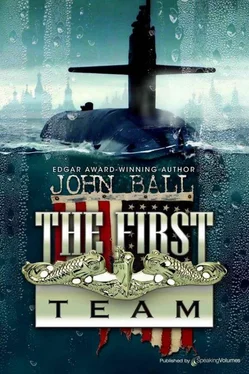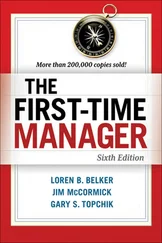Джон Болл - The First Team
Здесь есть возможность читать онлайн «Джон Болл - The First Team» весь текст электронной книги совершенно бесплатно (целиком полную версию без сокращений). В некоторых случаях можно слушать аудио, скачать через торрент в формате fb2 и присутствует краткое содержание. Год выпуска: 2013, Жанр: Триллер, на английском языке. Описание произведения, (предисловие) а так же отзывы посетителей доступны на портале библиотеки ЛибКат.
- Название:The First Team
- Автор:
- Жанр:
- Год:2013
- ISBN:нет данных
- Рейтинг книги:5 / 5. Голосов: 1
-
Избранное:Добавить в избранное
- Отзывы:
-
Ваша оценка:
- 100
- 1
- 2
- 3
- 4
- 5
The First Team: краткое содержание, описание и аннотация
Предлагаем к чтению аннотацию, описание, краткое содержание или предисловие (зависит от того, что написал сам автор книги «The First Team»). Если вы не нашли необходимую информацию о книге — напишите в комментариях, мы постараемся отыскать её.
Student protesters are being slaughtered in the Midwest.
The Jewish pogroms have begun.
You are now living in Soviet — occupied America!
One nuclear submarine and a handful of determined patriots against the combined might of Russia and Soviet-occupied America… The Most Explosive and Gripping “What If” Novel of Our Time!
First published January 1971
The First Team — читать онлайн бесплатно полную книгу (весь текст) целиком
Ниже представлен текст книги, разбитый по страницам. Система сохранения места последней прочитанной страницы, позволяет с удобством читать онлайн бесплатно книгу «The First Team», без необходимости каждый раз заново искать на чём Вы остановились. Поставьте закладку, и сможете в любой момент перейти на страницу, на которой закончили чтение.
Интервал:
Закладка:
“Sir, you have final and absolute authority from the President?” “Affirmative,” Haymarket answered.
“Does Commander Nakamura fully understand that you are so empowered?”
“He does.”
“He will then definitely respect the order to fire.”
“He will. He is at sea for that purpose and he knows it.”
“And technically the firing requirements have all been met.”
“That is absolutely affirmative, Walt was there when it was checked out.”
“According to the Navy regs,” Wagner said, “I was not permitted to witness the actual check, but it was run and the captain told me without equivocation that he is fully prepared to fire and will do so upon receiving the orders from us.”
“That being the case,” Pappas said, still with no emotion in his voice, “I now recommend, sir, that you raise Magsaysay and pass the necessary first order to fire. If the enemy hears us, so much the better.”
“Will she acknowledge?” Higbee asked.
The admiral answered him carefully and exactly. “If for any reason she cannot follow the order, then she will so advise us at a precise interval of time after we contact her. If she can, then she will give no response. Her position shortly before firing is extremely critical information. At the moment only General Gifford and I know where she is, other than the members of her crew. Two of us have to know in case anything should happen to me.”
“Have you communicated with her?”
Once again the admiral was very careful with his words. “No, Ed, not recently. Two messages have been sent, but no replies have been received. I stress that none would have been given except in case of malfunction. We have a schedule for reporting such information. Our listening watch has been uninterrupted and she has not put out a thing.”
“Pardon me, Barney, but like Ted I want to hear everything that is vital at least twice. If we send a signal to her, will she receive it?”
“Nothing is ever absolutely certain, Ed, with the usual exceptions, but it is as close to one hundred per cent as our best technology can make it. I will say this: she knows what is going on, she positively will be listening, our signal strength can reach her where she is with absolute ease, and her reception equipment is redundant several times over with independent power sources and all supportive gear.”
“I then second Ted’s recommendation that you notify her of your intention to fire.”
The admiral looked around the table. “Gentlemen, you now know how Harry Truman felt when he faced the decision whether or not to release the bomb against Hiroshima. I want your individual votes: do we or don’t we back up our message to Rostovitch. Shall I order Magsaysay to fire?”
“Yes,” General Gifford said. “In your absence I would give that order.”
“Hank?”
“Go,” Colonel Prichard responded, “and may God help us.”
“Ted?”
“Yes, it’s down to the wire.”
“Ed?”
“Agreed, we go.”
“Stanley?”
“Is there any visible alternative?”
The admiral shook his head. “None of which I am aware.”
“I just wanted to ask to make absolutely sure. Fire.”
“Walt?”
“The issue is already decided, sir, and there’s no question about it. I know Rostovitch better than any man here. Our hides won’t satisfy him; he will keep this country in continuous terror and bloodshed for, at the least, months to come. That’s the real consideration.”
A message came in from Philadelphia. The units there volunteered to surrender themselves as the Thomas Jefferson personnel; they had enough supportive gear and communications equipment to make it look good. It would save the main operation. Acceptance was urged.
“As long as this country can produce men and women like that,” the admiral said, “I’m going to fight for them with everything that I’ve got.” He pressed a button before him and an aide came in. “Prepare a signal to Magsaysay,” he directed. “First order to fire. Do you know the details?”
“Yes, sir. Will you please personally review the message, sir, before it is sent.”
The admiral nodded. “I will. That’s required and I know it — I made the rule.”
“Yes, sir.”
When the man had gone the admiral asked one more thing. “How about Hewlitt, the interpreter? I haven’t heard about that.” Ted Pappas responded. “He was positioned, sir, a short while ago. Mark has him in tow. He reports that Hewlitt is calm and ready.”
“Good. When shall we put him in?” He looked toward Ed Higbee. The former journalist glanced at the clock. “Anytime between now and two-thirty this afternoon; after that it would be too late. Let Mark call the shot; he’s got to handle the operational end.”
“So ordered,” the admiral said.
As he moved about through the rooms and corridors of the White House Major Barlov revealed no changes in his demeanor — he remained a disciplined officer well qualified to hold a field grade assignment and to carry the responsibilities assigned to him. Many of the White House regular staff were at pains to avoid him, which suited the major perfectly; it was precisely what he most wanted them to do. The two secret service agents who had been part of the Hewlitt-Stoneham cell continued to watch his movements closely and to report their findings through fresh channels of communication which had been set up for the purpose. It was a high tribute to the major’s level of efficiency that not once, even for a single moment, did he betray himself in any way.
Although Rostovitch was, for the time being at least, sitting in the Oval Office, Barlov knew that the real center of his operations would still be in his own headquarters and that he had no intention of moving them. Zalinsky was not out of things yet and Rostovitch would keep a door open through which he could make his retreat if such a temporary expedient became necessary. Barlov was still in full charge of his own department, but when his telephone rang and he learned that a newly captured prisoner was to be brought shortly to the White House to be interviewed by Rostovitch there, he knew at once that there had been a significant change in the signals.
With cool composure he appraised the situation and tried to guess the identity of the person in custody. Within a few seconds he arrived at a conclusion and issued some orders. Then he made a phone call of his own and inquired about the nondelivery of some wanted supplies.
The first small group of demonstrators materialized outside the White House before another half hour had passed. No great stir marked their arrival, but the major sent a man to watch them nonetheless. Presently others came, so that when a car pulled up with the prisoner and his captors, the line of marchers was already of sizable proportions. Silently the major gave thanks that the Americans, who had never been too well known for their skill in such matters, were proving efficient this time.
Barlov went himself to receive the prisoner. It was not the person he had anticipated, nor the most likely alternate; this meant that the demonstration being staged outside might be futile and a trump card had been wasted. For that the major blamed himself, but at the same time he knew that the bet he had made had been right and that the odds had been with him.
But if the prisoner had been brought directly to be seen by Rostovitch himself, then despite appearances he was probably someone of consequence. Barlov wasted no more time in conjecture. “We will take him,” he announced coldly. “He will be held and produced for examination on the colonel’s order.”
The man in charge of the small detachment shook his head. “We must take him to Colonel Rostovitch ourselves.”
Читать дальшеИнтервал:
Закладка:
Похожие книги на «The First Team»
Представляем Вашему вниманию похожие книги на «The First Team» списком для выбора. Мы отобрали схожую по названию и смыслу литературу в надежде предоставить читателям больше вариантов отыскать новые, интересные, ещё непрочитанные произведения.
Обсуждение, отзывы о книге «The First Team» и просто собственные мнения читателей. Оставьте ваши комментарии, напишите, что Вы думаете о произведении, его смысле или главных героях. Укажите что конкретно понравилось, а что нет, и почему Вы так считаете.












